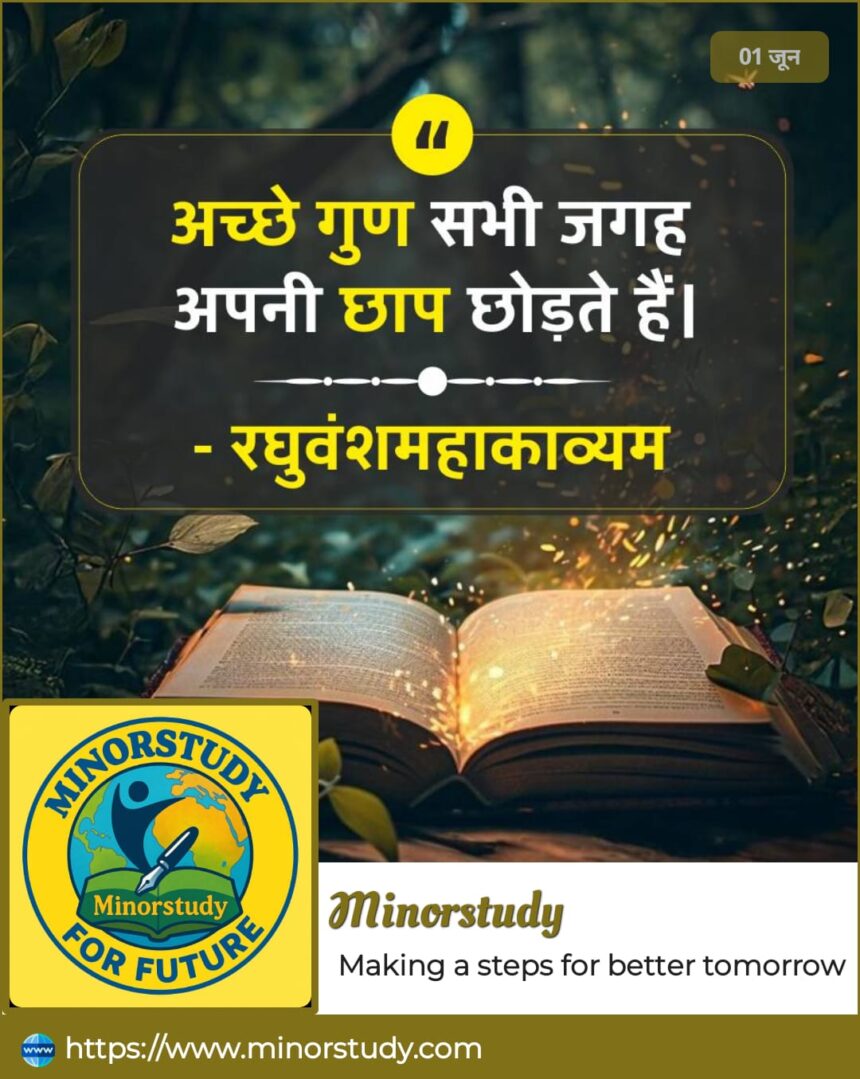7 Powerful Reasons Why Raghuvansh Mahakavyam Still Inspires India Today
The Raghuvansh Mahakavyam, or Raghuvamsha, is more than just a Sanskrit epic. Authored by the legendary poet Kalidasa, this classical composition is a monument of Indian literary, ethical, and cultural heritage. From its poetic beauty to its philosophical depth, Raghuvansh speaks to the timeless values of dharma (duty), rajneeti (governance), and moral strength, making it not just relevant in ancient India but also in today’s fast-paced world.
- 🌟 History of Raghuvansh Mahakavyam
- 📚 Fascinating Facts About Raghuvansh Mahakavyam
- 🗓️ Timeline of Raghuvansh Mahakavyam
- 🧠 Significance in Indian Life and Society
- 1. Cultural Identity
- 2. Model of Leadership
- 3. Moral and Ethical Compass
- 4. Literary Brilliance
- 5. Inspiration in Modern Life
- 🙏 Observance and Legacy Today
- 💡 FAQs about Raghuvansh Mahakavyam
- ❓ Who wrote Raghuvansh Mahakavyam?
- ❓ What is the main theme of Raghuvansh?
- ❓ How is it different from Ramayana?
- ❓ Is it relevant today?
- ❓ Can it be read in English or Hindi?
- 💬 Wishing and Reflecting on Raghuvansh Mahakavyam
- 📌 Important Points to Remember
- 🏡 Why Raghuvansh Mahakavyam Matters in Daily Life
- 🧭 Conclusion: A Beacon for the Soul
Let us explore everything about Raghuvansh Mahakavyam — its origin, legacy, wisdom, societal impact, and why it deserves a place in our daily reflections.
🌟 History of Raghuvansh Mahakavyam
Raghuvansh Mahakavyam, translated as “The Dynasty of Raghu,” is believed to be composed between the 4th to 5th century CE by Kalidasa, one of the greatest Sanskrit poets and dramatists. He was a court poet during the Gupta Empire, often referred to as the Golden Age of India.
This epic poem (Mahakavya) recounts the lineage of King Raghu, starting with King Dilipa, followed by legendary rulers like Raghu, Aja, and Dasharatha, culminating in the glorious life of Lord Rama — an avatar of Vishnu and the hero of the Ramayana.
The poem is composed in Sanskrit, using highly refined meters and deep poetic expressions, showcasing Kalidasa’s unmatched literary genius.
📚 Fascinating Facts About Raghuvansh Mahakavyam
Contains 19 sargas (cantos), although it is believed the final portion was left incomplete.
Kalidasa’s signature style of similes (upamas) and natural imagery is richly present.
The Raghu dynasty is a symbol of ideal kingship and governance in Indian philosophy.
Many verses from Raghuvansh are quoted in modern Indian legal, ethical, and political discourse.
Lord Rama is mentioned as a descendant of King Raghu, making this epic a historical prequel to the Ramayana.
It is one of the five Mahakavyas recognized in classical Sanskrit literature.
The epic integrates Kavya (poetry), Itihasa (history), and Dharma (ethics).
🗓️ Timeline of Raghuvansh Mahakavyam
| Time Period | Event |
|---|---|
| 4th-5th Century CE | Composition by Kalidasa under Gupta rule |
| Medieval India | Translated and taught in Gurukuls and royal courts |
| Colonial India | Became subject of Sanskrit revival and nationalist pride |
| 20th Century | Translations into Hindi, English, and regional languages |
| 21st Century | Referenced in ethical discussions, leadership modules, and literature curricula |
🧠 Significance in Indian Life and Society
1. Cultural Identity
Raghuvansh showcases the moral backbone of Indian civilization — truth, valor, sacrifice, and compassion. It highlights India’s Vedic and epic roots and connects generations to their ancestral values.
2. Model of Leadership
The Raghu kings, especially Rama, are archetypes of ideal leadership — selfless, just, and compassionate. Their lives offer blueprints for ethical governance even in today’s democracies.
3. Moral and Ethical Compass
Verses from the Raghuvansh teach the importance of duty over desire, truth over power, and family and kingdom over self-interest — timeless values applicable to family, business, and social life.
4. Literary Brilliance
Kalidasa’s masterful language elevates Sanskrit to its artistic pinnacle. His metaphors and rhythmic elegance make it a textual gem for students and scholars.
5. Inspiration in Modern Life
Entrepreneurs, leaders, and parents can draw practical guidance from the epic — be it patience, decision-making, or emotional balance.
🙏 Observance and Legacy Today
Though not a religious ritual text, Raghuvansh is respected as a sacred literary scripture. It’s taught in:
Sanskrit universities
Spiritual discourses (kathas)
Literary festivals
Ethical leadership programs
Many modern authors and politicians quote from it to emphasize righteous action (Karma Yoga) and detached leadership (Nishkama Karma).
💡 FAQs about Raghuvansh Mahakavyam
❓ Who wrote Raghuvansh Mahakavyam?
Kalidasa, the classical Sanskrit poet of the Gupta Era.
❓ What is the main theme of Raghuvansh?
The righteous legacy of the Raghu dynasty, focusing on ethical governance, familial duty, and dharma.
❓ How is it different from Ramayana?
Ramayana focuses on Lord Rama’s life, while Raghuvansh elaborates on Rama’s entire ancestral lineage.
❓ Is it relevant today?
Absolutely. It speaks of values, duty, and governance, making it a philosophical guide for modern life.
❓ Can it be read in English or Hindi?
Yes, multiple translations and commentaries are available in Hindi, English, and other Indian languages.
💬 Wishing and Reflecting on Raghuvansh Mahakavyam
On special occasions such as:
Kalidasa Jayanti
Vasant Panchami
Sanskrit Diwas
Literature Day Celebrations
People, especially students and scholars, quote verses and reflect upon its teachings. If you wish to greet someone:
🪔 “May the wisdom of Raghuvansh inspire your path with righteousness and grace.”
📖 “Let Kalidasa’s words echo in our lives like eternal dharma guiding our every step.”
📌 Important Points to Remember
Raghuvansh is not just a story—it is civilizational memory in poetic form.
Teaches dharma (righteousness) as the highest goal in personal and public life.
Demonstrates ideal kingship, emphasizing service over rule.
Provides language mastery for Sanskrit learners.
Has spiritual undertones without being a religious manual.
Acts as a bridge between Ramayana and ancient Indian history.
🏡 Why Raghuvansh Mahakavyam Matters in Daily Life
Character Formation: Reading or listening to the Raghuvansh strengthens virtues like humility, courage, and sacrifice.
Conflict Resolution: The kings’ decisions during war and peace serve as models for conflict management.
Leadership Skills: A practical manual for anyone in power—teachers, managers, public officials.
Literary Enrichment: Deepens appreciation of poetic expression and classical Indian thought.
Spiritual Anchoring: Promotes detachment, balance, and devotion to duty—a must in today’s chaotic world.
🧭 Conclusion: A Beacon for the Soul
In a world flooded with fleeting distractions, the Raghuvansh Mahakavyam stands as a beacon of timeless wisdom and virtue. Kalidasa’s poetic genius, combined with the legacy of Raghu’s dynasty, reminds us that greatness is not about power—but about righteousness.
From students to leaders, from households to institutions—everyone can draw life-changing insights from this epic. It’s not just a tale of kings, but a scripture for inner kingship — to rule one’s mind, heart, and actions with honor, grace, and truth.









certainly like your web site however you have to check the spelling on quite a few of your posts. A number of them are rife with spelling problems and I in finding it very troublesome to inform the truth however I will definitely come again again.